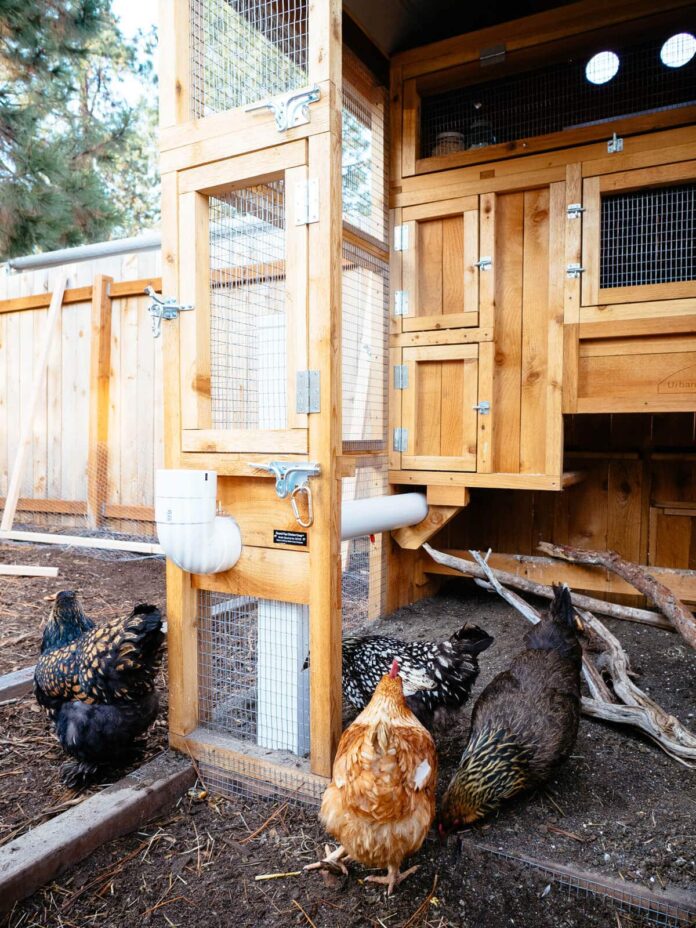
If you’re considering keeping chickens, one of the first things you’ll need to do is build a hen coop. A hen coop not only provides a safe and secure environment for your flock but also helps to keep them happy and healthy. Building the perfect hen coop is essential for the well-being of your chickens, and there are a few key factors to keep in mind when constructing your coop.
Size Matters
The size of your hen coop is one of the most important factors to consider when building a coop for your flock. The general rule of thumb is to allow at least 2-3 square feet of space per chicken inside the coop, and 8-10 square feet per chicken in an outdoor run. This will ensure that your chickens have enough space to move around comfortably and will help to prevent overcrowding, which can lead to stress and health problems. When building your coop, it’s also important to consider your future plans for the flock. If you anticipate expanding your flock, it’s a good idea to build a coop that can accommodate future growth.
Proper Ventilation
Ventilation is another important factor to consider when building a hen coop. Proper ventilation helps to regulate temperature and humidity inside the coop, which is essential for the health and well-being of your chickens. Good ventilation also helps to reduce the buildup of ammonia and other harmful gases, which can lead to respiratory problems and other health issues in chickens. When designing your coop, be sure to include windows or vents that can be opened and closed as needed to provide adequate airflow.
Security and Predation
Predators like foxes, raccoons, and birds of prey are a constant threat to chickens, so it’s important to build a coop that is secure and predator-proof. This means using strong and durable materials for the coop, such as pressure-treated lumber or hardware cloth, and ensuring that all doors and windows are securely latched. It’s also a good idea to bury hardware cloth around the perimeter of the coop to prevent predators from digging underneath. Additionally, consider adding a secure roof to the coop to prevent aerial predators from gaining access.
Nesting Boxes and Roosts
Nesting boxes and roosts are essential for the comfort and well-being of your flock. Nesting boxes provide a safe and private space for your chickens to lay their eggs, while roosts give them a place to sleep at night. When building your coop, be sure to include enough nesting boxes for your flock, with one box for every 3-4 hens. The boxes should be located in a quiet and dimly lit area of the coop to encourage egg-laying. Roosts should be placed higher than the nesting boxes to encourage chickens to roost at night, and they should be made of a comfortable material, such as a rounded piece of wood, to prevent foot injuries.
Easy Cleaning and Maintenance
A well-designed coop makes for easy cleaning and maintenance, which is essential for the health and hygiene of your chickens. When building your coop, consider features that make cleaning and maintenance a breeze, such as removable roosts and nesting boxes, easy-to-clean flooring, and doors that open wide for easy access. It’s also a good idea to include a designated area for storing feed and supplies to keep the coop organized and tidy.
Proper Lighting
Proper lighting is important for the health and productivity of your flock. Chickens need natural light to maintain healthy circadian rhythms, which can affect their laying patterns. When designing your coop, be sure to include windows or skylights to allow natural light to enter the coop. You can also consider adding artificial lighting to supplement natural light, especially during the winter months when daylight hours are shorter. This can help to maintain consistent egg production year-round.
Accessibility
Finally, when building your hen coop, it’s important to consider accessibility for both you and your chickens. The coop should be designed so that you can easily access all areas for feeding, cleaning, and collecting eggs. This may include adding a large door for easy access, as well as ramps or steps for chickens to move in and out of the coop. Be sure to consider your own physical abilities when designing the coop to ensure that it is convenient for you to care for your flock.
In conclusion, building the perfect hen coop for your flock is essential for the health and happiness of your chickens. When designing and constructing your coop, be sure to consider factors such as size, ventilation, security, nesting boxes and roosts, easy cleaning and maintenance, proper lighting, and accessibility. By taking these factors into account, you can create a safe and comfortable home for your flock that will provide them with everything they need to thrive.

















